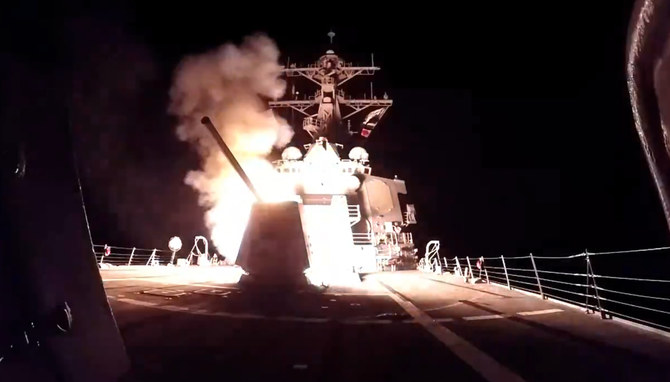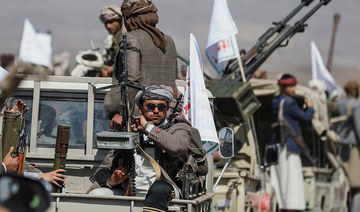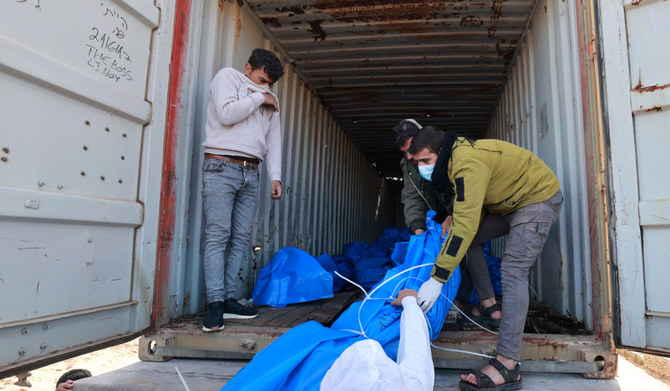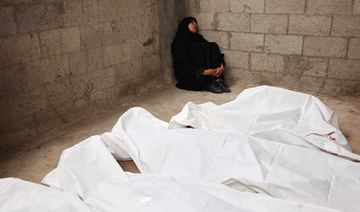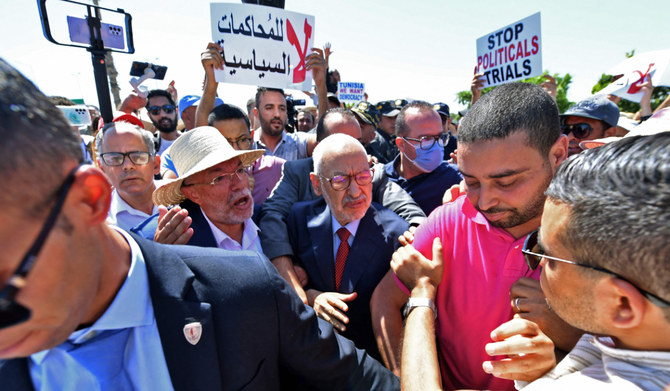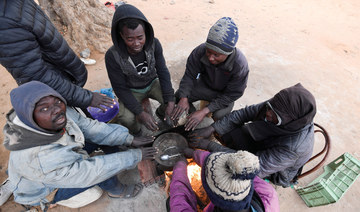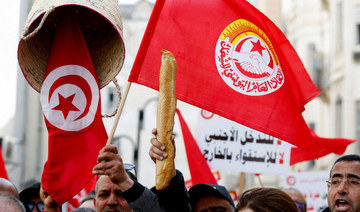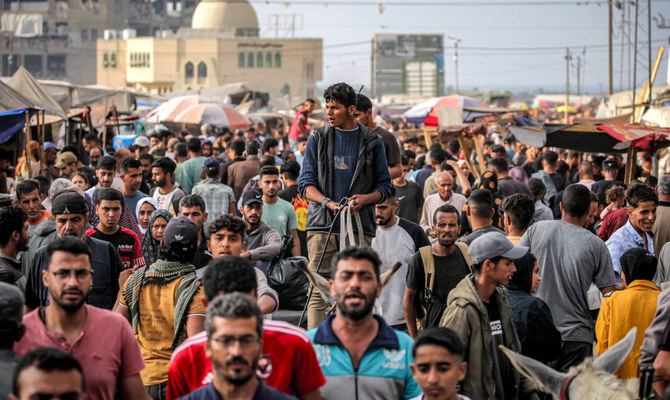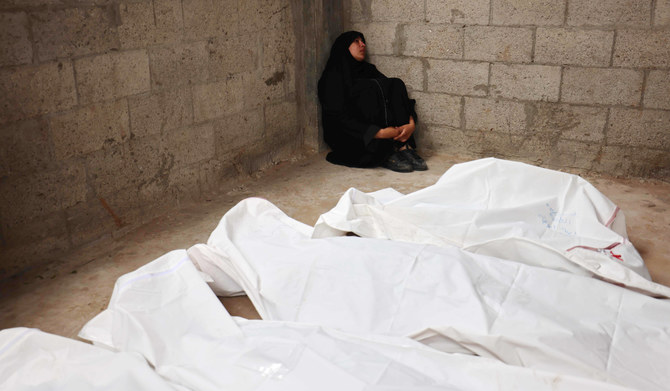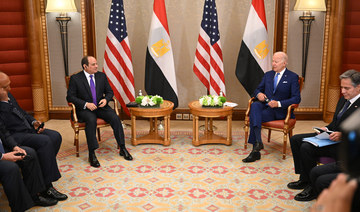JERUSALEM: After a weekend of retaliatory strikes, the United States on Sunday warned Iran and the militias it arms and funds that it will conduct more attacks if American forces in the Mideast continue to be targeted, but that it does not want an “open-ended military campaign” across the region.
“We are prepared to deal with anything that any group or any country tries to come at us with,” said Jake Sullivan, President Joe Biden’s national security adviser. Sullivan said Iran should expect “a swift and forceful response” if it — and not one of its proxies — “chose to respond directly” against the US.
Sullivan delivered the warnings during a series of interviews with TV news shows after the US and Britain on Saturday struck 36 Houthi targets in Yemen. The Iran-backed militants have fired on American and international interests repeatedly in the wake of the Israel-Hamas war.
American forces also carried out air strikes against five missiles in Yemen on Sunday — one designed for land attack and the others for targeting ships, the US military's Central Command (CENTCOM) said on social media.
The strikes came a day after US and UK forces launched a wave of air raids against the Houthis — their third round of joint military action in response to the rebels’ persistent attacks on shipping.
US forces “conducted a strike in self-defense against a Houthi... land attack cruise missile,” and later struck “four anti-ship cruise missiles, all of which were prepared to launch against ships in the Red Sea,” Central Command (CENTCOM) said on social media.
American forces “identified the missiles in Houthi-controlled areas of Yemen and determined they presented an imminent threat to US Navy ships and merchant vessels in the region,” CENTCOM added.
An air assault Friday in Iraq and Syria targeted other Iranian-backed militias and the Iranian Revolutionary Guard in retaliation for the drone strike that killed three US troops in Jordan last weekend. The US fired again at Houthi targets on Sunday.
“We cannot rule out that there will be future attacks from Iranian-backed militias in Iraq and Syria or from the Houthis,” Sullivan said. He said the president has told his commanders that “they need to be positioned to respond to further attacks as well.”
The US has blamed the attack at the Tower 22 base in Jordan on Jan. 28 on the Islamic Resistance in Iraq, a coalition of Iranian-backed militias. Iran has tried to distance itself from the drone strike, saying the militias act independently of its direction.
Biden “is not looking for a wider war,” Sullivan said, when questioned about the potential for strikes inside Iran that would expand the conflict in the volatile region. But when asked about the possibility of direct escalation by the Iranians, he said: “If they chose to respond directly to the United States, they would be met with a swift and forceful response from us.”
While pledging to respond in a “sustained way” to new assaults on Americans, Sullivan said he “would not describe it as some open-ended military campaign.”
Still, he said, “We intend to take additional strikes and additional action to continue to send a clear message that the United States will respond when our forces are attacked or our people are killed.”
There will be more steps taken, he said. “Some of those steps will be seen. Some may not be seen.”
The US attack on dozens of sites in Iraq and Syria hit more than 85 targets at seven locations. These included command and control headquarters, intelligence centers, rockets and missiles, drone and ammunition storage sites and other facilities that were connected to the militias or the Islamic Revolutionary Guard Corps’ Quds Force, the expeditionary unit that handles Tehran’s relationship with, and arming of, regional militias.
The Biden administration has so far appeared to stop short of directly targeting Iran or senior leaders of the Quds Force within its borders.
The US military does not have any confirmation at this time of civilian casualties from those strikes, Sullivan said. “What we do know is that the targets we hit were absolutely valid targets from the point of view of containing the weaponry and the personnel that were attacking American forces. So, we are confident in the targets that we struck.”
Some of the militias have been a threat to US bases for years, but the groups intensified their assaults in the wake of Israel’s war with Hamas following the Oct. 7 attack on Israel that killed 1,200 people and saw 250 others taken hostage. More than 27,000 people have been killed by Israel’s offensive against Hamas in Gaza, the territory’s Health Ministry has said.
The Houthis have conducted almost daily missile or drone attacks against commercial and military ships transiting the Red Sea and Gulf of Aden and they have made clear that they have no intention of scaling back their campaign despite a new international force to protect vessels in the vital waterway.
US strikes overnight Sunday struck across six provinces of Yemen held by the Houthi rebels, including in Sanaa, the capital. The Houthis gave no assessment of the damage but the US described hitting underground missile arsenals, launch sites and helicopters used by the rebels.
“These attacks will not discourage Yemeni forces and the nation from maintaining their support for Palestinians in the face of the Zionist occupation and crimes,” Houthi military spokesman Brig. Gen. Yahya Saree said. “The aggressors’ airstrikes will not go unanswered.”
Iran's floating armories
Meanwhile, Iran warned the US over potentially targeting two cargo ships in the Mideast long suspected of serving as forwarding operating bases for Iranian commandos. The statement from Iran on the Behshad and Saviz ships appeared to signal Tehran’s growing unease over the US strikes across the region.
The ships are registered as commercial cargo ships with a Tehran-based company the US Treasury has sanctioned as a front for the state-run Islamic Republic of Iran Shipping Lines. The Saviz, then later the Behshad, have loitered for years in the Red Sea off Yemen, suspected of serving as spy positions for Iran’s Revolutionary Guard.
In the video statement by Iran’s regular army, a narrator describes the vessels as “floating armories.” The narrator describes the Behshad as aiding an Iranian mission to “counteract piracy in the Red Sea and the Gulf of Aden.” But Iran is not publicly known to have taken part in any of the recent campaigns against rising Somali piracy in the region off the back of the Houthi attacks.
Just before the new campaign of US airstrikes began, the Behshad traveled south into the Gulf of Aden. It’s now docked in Djibouti in East Africa just off the coast from a Chinese military base in the country.
The statement ends with a warning overlaid with a montage of footage of US warships and an American flag.
“Those engaging in terrorist activities against Behshad or similar vessels jeopardize international maritime routes, security and assume global responsibility for potential future international risks,” the video said.
The US Navy’s Mideast-based 5th Fleet declined to comment over the threat.
The Saviz is now in the Indian Ocean near where the US alleges Iranian drone attacks recently have targeted shipping.
Sullivan appeared on NBC’s “Meet the Press,” ABC’s “This Week,” CNN’s “State of the Union” and CBS’ “Face the Nation.”
(With AFP)




